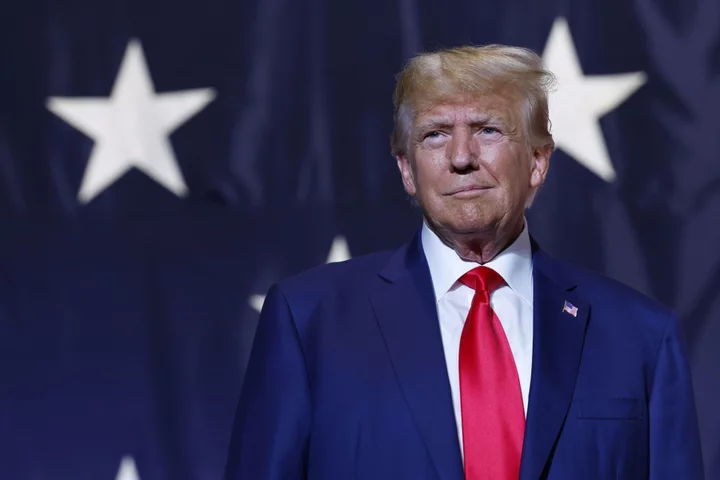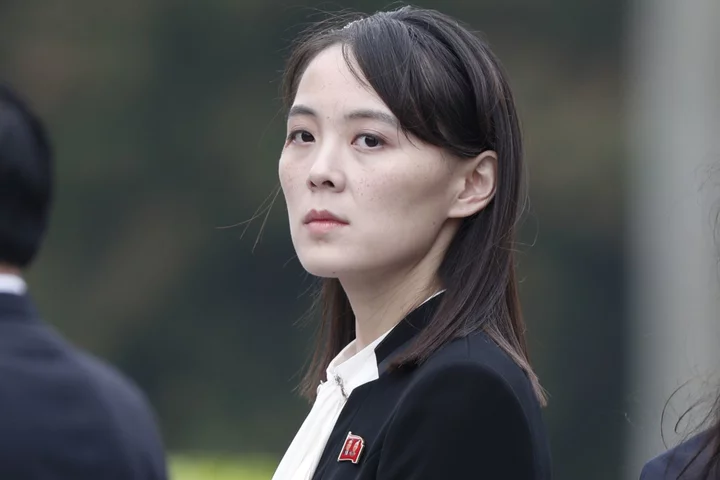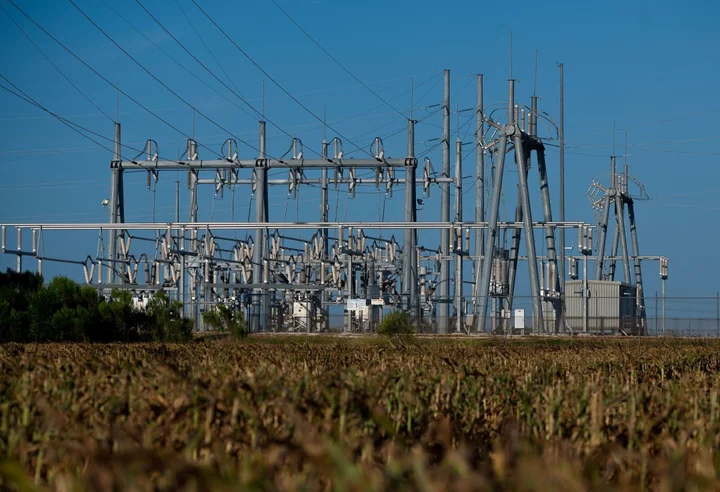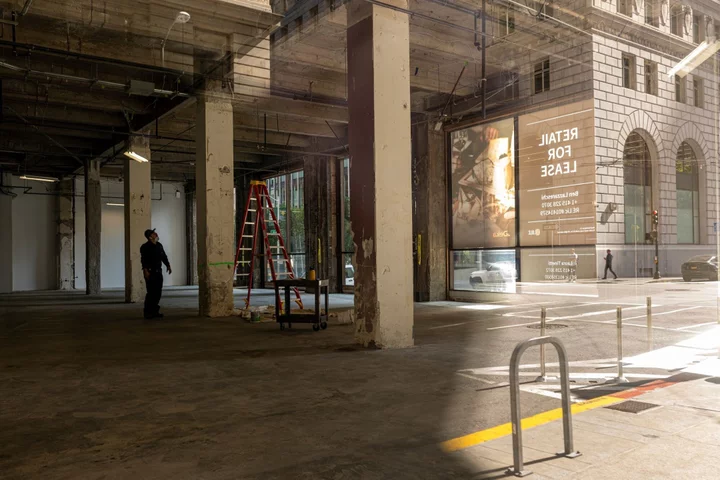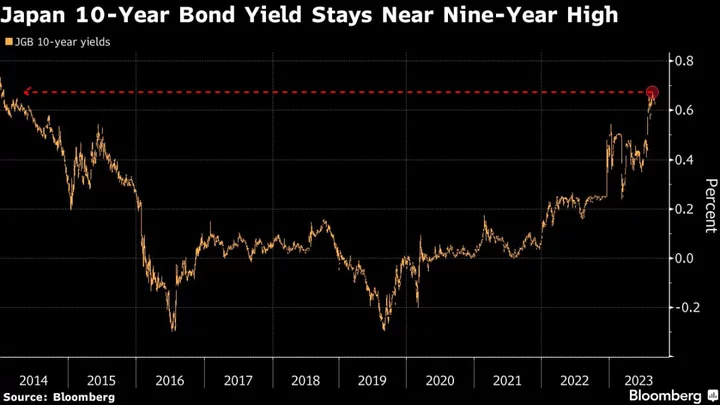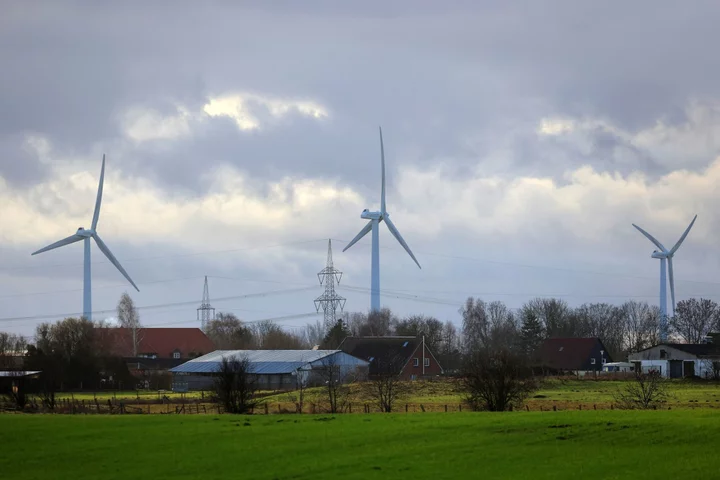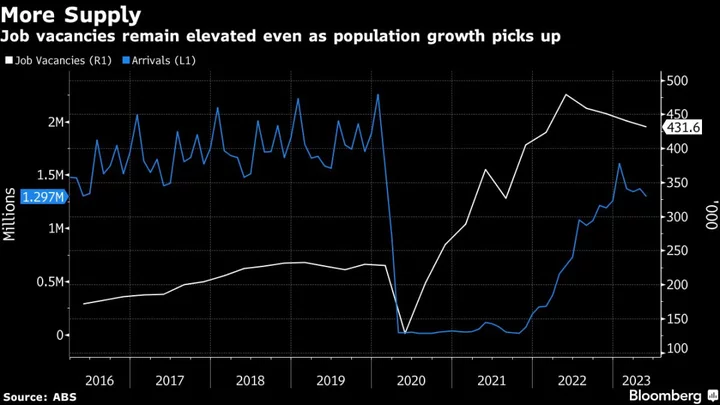Donald Trump’s lawyer in Georgia said Friday that if his client wins the presidency next year, he can’t face a state racketeering trial until after he leaves office.
Attorney Steven Sadow argued during a court hearing that the US Constitution shields Trump from a trial if he wins the White House. He cited the constitution’s Supremacy Clause, which says federal law takes precedence over state law. Trump is accused of leading a conspiracy to stay in office after losing the 2020 election.
Fulton County District Attorney Fani Willis has asked for an August trial date for Trump and 14 remaining co-defendants. She has said a trial could last into 2025. Superior Court Judge Scott McAfee asked Sadow whether Trump “could even be tried” in 2025 if won the election.
“I believe that under the Supremacy Clause and his duties as president of the United States, that this trial would not take place, if at all, until after he left his term of office,” Sadow replied.
The Georgia case is one of four criminal prosecutions Trump faces as he mounts his latest run for the White House. He has trials next year in the other cases in Washington, New York and Florida, with dates in March and May. But there are signs that at least some of those timelines could change, complicating McAfee’s efforts to schedule his trial, which is expected to take months.
McAfee hasn’t set a trial date or decided whether other defendants could face separate trials. Willis and her prosecutors have said that all 15 defendants - four others have pleaded guilty - should be tried together. But the judge gave some indication of how he may proceed.
He said he “feels eight is the most we could do at once. My initial thought is the state would able to choose an A league and a B league” and decide which defendants should be tried first.
Immunity Argument
Sadow has said he will file written arguments that Trump is immune from prosecution because he was president when prosecutors allege he oversaw a wide-ranging conspiracy to overturn President Joe Biden’s victory.
At the hearing, he said Trump shouldn’t be required to go to court if he wins the Republican nomination.
“Can you imagine the notion of the Republican nominee for president not being able to campaign for the presidency because he is in some form or fashion in a courtroom defending himself?” Sadow said. “That would be the most effective election interference in the history of the United States.”
Prosecutor Nathan Wade said Willis “has no interest in interfering or getting involved with this presidential election. Her sole focus to move this case forward.”
When the judge asked Sadow if Trump would be present for every day of a trial, the lawyer hedged. Trump, he said, would want to be present for “matters involving jury selection and for matters of the jury itself.”
But he added: “I can’t speak for President Trump on that at this moment. I need to have more interaction with him and his campaign team, and a lot of other people come into play in making the decision.”
--With assistance from Zoe Tillman.
(Updates with details of hearing starting in eighth paragraph)

